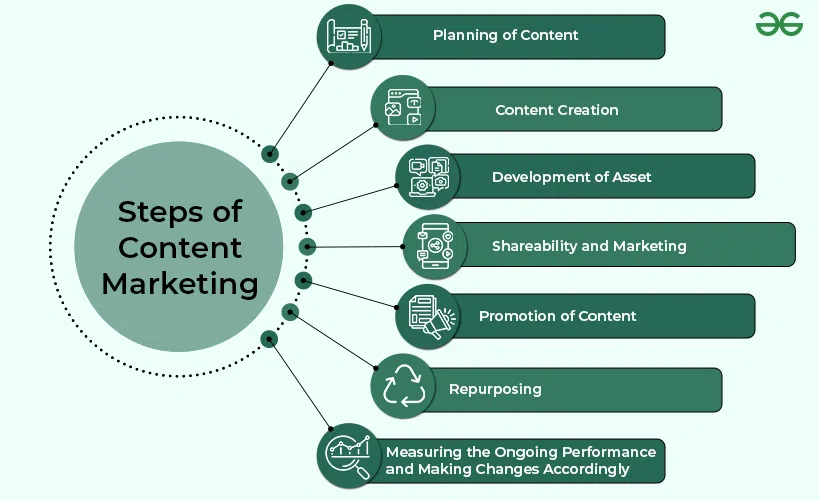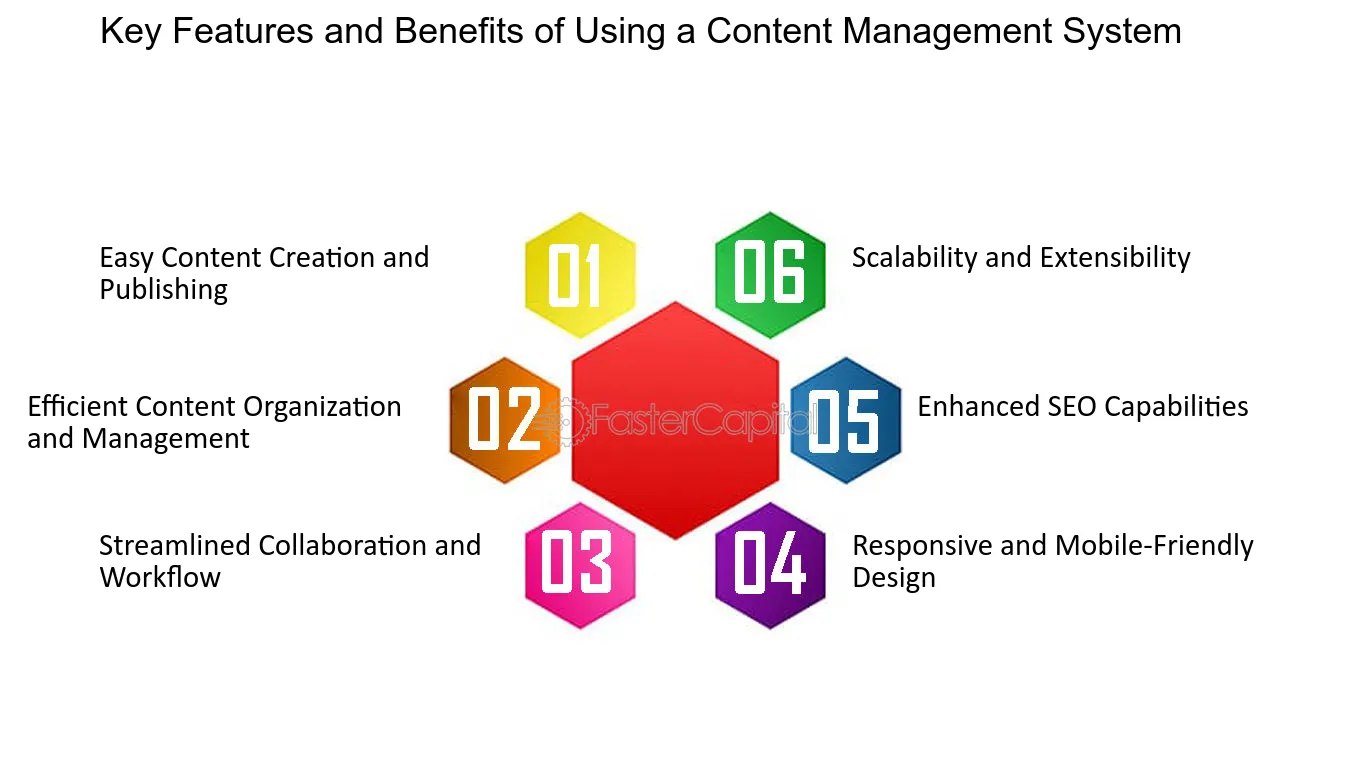Nailing content marketing is all about mixing the right ingredients—like creating content, planning it out, and managing your social media. You need a content-first approach, a killer content marketing team, and solid project management to really make waves. Making sure your content aligns with your inbound marketing strategy is key to pulling off a successful campaign.
Also, blending your SEO strategy with your content efforts is crucial to getting your stuff seen by the right eyes.
Understanding the importance of content marketing management
Content marketing management is super important for driving your company’s content success.
It covers everything from creating cool content to planning marketing emails and managing the whole shebang.
Without a smart content strategy and smooth operations, you might miss out on leads and revenue.
Basically, good management helps your content processes run better, ensuring your inbound strategy works like a charm.
Defining content marketing management

Content marketing management is all about planning, creating, and overseeing your content strategy.
It spans a bunch of activities including crafting content, planning it, and managing channels like social media and email. This whole process helps your business attract and engage audiences and turn them into customers.
A great content marketing setup needs a strong process and project management, plus a skilled team to run your campaigns and nail your SEO.
The role of content marketing in today's digital landscape
Content marketing is huge in today’s digital scene. It’s all about strategies for creating content, planning it, and sending out marketing emails—all essential for pulling in and keeping an audience that drives sales. The process includes managing your social media and rocking an SEO strategy, which are key for extending your reach.
More and more businesses are beefing up their content teams to ensure solid project management and overall success, showing just how crucial good content operations are nowadays.
Key elements of effective content marketing management
Effective content management really hinges on sharp planning, a great team, and spot-on project management. It deals with everything from creating content to handling SEO and managing your social media.
At its heart, it’s about a content-first approach that covers both your inbound strategy and detailed content operations.
This includes making and sharing content, using email marketing to connect with customers, and running content campaigns to really nail your content goals.
Creating a content marketing strategy
Crafting a killer content marketing strategy is crucial for hitting your content goals.
The strategy includes key steps like content creation, planning, and an SEO strategy for getting seen online.
This approach is vital for setting the direction of your content campaign.
It also weaves in other key elements like email marketing, social media management, and your overall inbound strategy.
When done right by a dedicated team, these components streamline your operations and make sure your project management is on point.
Streamline & automate your workflows with Bonsai

Bonsai enhances workflow efficiency by automating and streamlining processes, focusing on resource planning. It equips team planners with intuitive tools to allocate resources effectively, ensuring optimal utilization. By automating routine tasks, Bonsai allows teams to concentrate on strategic planning and execution.
Understanding your target audience
Getting to know your target audience is critical for a successful content campaign.
It’s central to creating content and is essential in planning your content to ensure a content-first approach.
Understanding your audience helps in managing social media, crafting marketing emails, and shaping your SEO strategy.
It also feeds into your inbound strategy, playing a key role in your overall content process.
Effective project management taps into this knowledge, helping your content team streamline operations for better results.
Developing high-quality, relevant content
The foundation of any solid inbound marketing strategy is creating top-notch, relevant content.
This involves careful planning and teamwork within your content crew to make sure what you create lines up with your broader content strategy.
Sharp project management is key to keeping your content processes streamlined and consistently successful.
Key things to think about include using an SEO strategy to boost visibility, managing social media for sharing, and using email marketing for more personal touches.
A content-first approach is crucial and ultimately drives a successful campaign and efficient operations.
Optimizing content for SEO
A solid SEO strategy can really lift your content marketing game. It involves a content-first method that ties together effective content creation, planning, and social media management.
Specifically, a well-thought-out content campaign makes the most of the content marketing process, which includes targeted email marketing and a comprehensive inbound strategy, all aimed at improving project management and operational effectiveness.
Your content team is key in creating and sharing content that not only meets SEO standards but also fits seamlessly with your overall content operations.
Remember, good SEO isn’t just about keywords—it’s about crafting quality content that engages and adds value for your audience.
Best practices for content marketing management
Content marketing management is crucial in enhancing brand visibility; however, it is paramount to employ effective strategies. The success of any marketing campaign largely depends on marketing project management, which plays a key role in coordinating tasks and ensuring deadlines are met. Therefore, integrating these two aspects can significantly boost your campaign's performance.

Nailing content marketing management means diving into a content-first mindset, crafting a solid strategy, and rocking email marketing. Kick things off with content that’s in sync with your project management, then spread the word via social media and emails. Keep your content marketing game strong with regular strategy check-ups, fine-tuning operations, and tweaking the SEO game as needed. A killer campaign is all about being flexible yet consistent, building a real bond with your audience through content that’s rich, valuable, and super engaging.
Consistency in content creation
Consistency is the secret sauce in content creation. It’s a cornerstone of any content marketing strategy, guaranteeing top-notch quality and relevance. Getting into a content-first groove means planning like a boss, steering your marketing team like a pro, and rolling out a tight content marketing process.
Sticking to a consistent game plan is a big win for your content marketing success. It amps up your inbound game, backs up solid email marketing and social media moves, and spices up the SEO strategy. Plus, it’s a game-changer for your overall project management.
So, whether you’re crafting and sharing content or running a full-blown marketing campaign, consistency is your ticket to a smooth ride and epic wins in content marketing operations.
Utilizing different content formats
A top-tier content marketing strategy is all about mixing it up with different content formats. From emails and social media to blogs and webinars, this dynamic creation process cranks out a variety of stuff that hits the spot for a wide audience. Throwing an inbound marketing strategy into the mix is a smart move, too.
Your content marketing squad should zero in on:
- Content marketing planning: lining up each piece with your big-picture goals
- SEO strategy: making your content pop in search results
- Marketing project management: pulling off each content project with style
With this all-encompassing, content-first approach, businesses are set to score big in content marketing success.
Measuring and analyzing content performance
Keeping tabs on content performance is key in any content marketing playbook. These numbers are the real deal, showing off your content marketing wins. You’ve gotta weigh up factors like content creation, SEO strategy, and social media management.
It’s all about tracking how your content’s doing, peeping at the engagement from your email marketing, and checking out how many visitors you’re turning into leads with your inbound strategy. Then, use what you learn to level up your content marketing process and overall project management.
Role of technology in content marketing management
Managing your content marketing requires organization skills, strategic planning, and effective use of resources, among other elements. Enhancing efficiency can be achieved by leveraging tools like Time Tracking Software for Marketing Agencies, which facilitates task tracking, deadline management, and performance optimization. It is crucial to monitor team productivity and ensure that projects are completed on time to maintain client satisfaction.
Tech’s got a starring role in content marketing management, helping out every step of the way from making content to getting it out there. It’s a big help in making the content marketing process smoother and setting up a content-first approach. Key moves like content marketing planning, social media management, and email marketing get a boost from the latest tech.
With the right tech tools, your content marketing team can whip up and roll out an inbound marketing strategy with ease, supercharge the SEO strategy, and keep an eye on your content marketing success. So yeah, tech’s a major player in stepping up your content marketing operations and pushing a successful campaign forward.
Benefits of using content management systems

Jumping on the CMS bandwagon brings a bunch of perks for streamlining your content marketing operations. A big plus is in content creation—CMS makes it way easier to get your content made and managed. It also simplifies the whole content marketing process and gives your marketing team a leg up in deploying a killer content marketing strategy.
Other goodies include leveling up your email marketing and social media management game. CMS often packs features that support your inbound marketing strategy, making it a snap to share your content across different digital platforms. Plus, a content-first approach becomes way more doable and can lead to big wins in content marketing success.
And let’s not forget, CMS is a champ in the SEO arena. It helps make your content more search engine-friendly, bumping up your visibility and bringing in more traffic. All in all, CMS is a must-have tool for marketing project management.
Top content management systems: WordPress, HubSpot, and Drupal
WordPress, HubSpot, and Drupal are the MVPs of content management systems, perfect for pulling off a content marketing strategy. These platforms are pros at handling stuff like content creation, marketing project management, and email marketing.
WordPress is a standout for its SEO strategy tools and making content creation and distribution a breeze. HubSpot’s a star when it comes to inbound marketing strategy and social media management. Drupal gets props for its smooth content marketing operations and content-first approach, paving the way to content marketing success.
How to build a content marketing team
Building a successful content marketing team starts with careful content marketing planning. Identify the specific skills needed to implement your content marketing strategy, such as content creation, email marketing, and social media management. Then recruit or train individuals with these skills.
Your team should also be adept in implementing inbound marketing strategy, SEO strategy, and should have an excellent grasp of the overall content marketing process. Remember, success in content marketing is not just about creating and distributing content; it’s about implementing a content-driven approach throughout your marketing project management and operations.
Key roles in a content marketing team
A content marketing team consists of individuals who focus on various aspects of content creation, distribution and marketing. Key roles within this team include the content marketing strategist, who oversees the content marketing planning, ensuring the alignment with the overall business and marketing goals.
The team also includes professionals responsible for content creation, handling tasks from blog posts to email marketing campaigns and social media management. Then, there are specialists who implement the inbound marketing strategy and ensure SEO strategy is effective. They play a critical role in the content marketing process, and they are essential to the team's success.
Having a well-defined team and specific roles within it helps streamline the marketing project management and ensures a content-driven approach. Ultimately, it facilitates content marketing operations and significantly contributes to content marketing success.
Collaboration and communication in a content marketing team
Effective collaboration and communication within a content marketing team are crucial in crafting a successful content marketing strategy. It involves harmonious content creation, progressive content marketing planning, and strategic email marketing, ensuring that each element complements the other to achieve content marketing success.
An optimized workflow promotes smooth content marketing operations, encouraging a content-driven approach among team members.
Regular brainstorming sessions, clear delineation of roles, and frequent check-ins aid in the seamless creation and distribution of content. A cohesive content marketing team is indispensable in implementing an inbound marketing strategy and managing a successful content marketing campaign.
Challenges in content marketing management and how to overcome them
Handling content creation is a major hurdle in content marketing management.
This involves continuous ideation, research, and analysis to churn out content that grabs attention and stays relevant.
Next up, you need a killer content marketing strategy that integrates SEO, social media, and email marketing, which can really eat up your time.
Also, wrangling a diverse content marketing team and keeping them on the same page is no small feat.
To tackle these challenges, you need a structured content marketing process.
This should include a content-first approach in creation, using marketing project management tools for efficient team and task coordination, and regularly updating your inbound strategy to keep up with market shifts.
Dealing with content saturation
Content saturation calls for a dialed-in content marketing strategy. This means detailed planning from ideation through to distribution. Plus, leveraging social media management and email marketing can broaden your reach and boost engagement.
A sharp SEO strategy also lifts your visibility and can bump you up in search rankings. Ultimately, a solid campaign comes from a coordinated team, a thorough process, and a strong focus on content.
Staying up-to-date with SEO changes
Keeping up with SEO changes is vital for your content marketing’s success. This means constantly revising your SEO strategy, staying on top of industry changes, and quickly weaving these updates into your content planning.
Staying current is crucial for your content team and is a big part of your ongoing operations.
It’s all about improving areas like email marketing, social media management, and overall content creation.
Managing content across multiple platforms
Managing content across various platforms requires a strategic balance of several elements.
This includes content creation, social media management, and email marketing, all part of your broader content marketing plan. A content-first approach is crucial for crafting compelling content for diverse audiences and driving your campaign forward.
SEO is key for increasing your reach and visibility, and there’s a constant feedback loop among these elements that helps propel ongoing success.
Successful content marketing management in action
Company X nailed their content marketing by mastering content creation and using a variety of engaging content types to captivate their audience. Their comprehensive email marketing campaigns helped them reach their clients more effectively, boosting lead conversions.
At the same time, their content team pushed a savvy inbound strategy that drove organic traffic.
Their content-first strategy, backed by solid SEO and sharp project management, showcased just how effective a well-run content process can be.
How HubSpot mastered content marketing management
HubSpot charted its own path to content marketing success with a strong focus on creating robust content and strategic planning. Their team doesn’t just produce engaging articles; they also bake SEO into each piece to enhance visibility and reach.
HubSpot also amped up their content operations with powerful email marketing campaigns and social media management. By consistently delivering valuable content directly to their customers’ inboxes and social feeds, they’ve maximized their inbound strategy, driving growth and engagement.
Content marketing success: the Adobe story
Adobe, known for its creative and multimedia software, has scored big in content marketing with a strategic mix of content creation, planning, and email marketing. Positioning itself as an industry expert, Adobe’s content team focuses on producing engaging content that resonates with their audience. Their content process is driven by a deep understanding of customer needs and interests, which fuels their inbound strategy.
With fine-tuned SEO and efficient project management, Adobe’s content operations show how robust planning and execution can turn a content campaign into a major success story.







